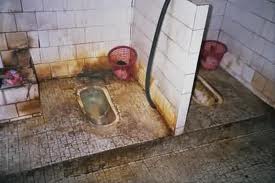CU News
News from the University of Colorado in Boulder.

CU develops solar toilet for third world use
Mar 13th
by CU-Boulder ready for India unveiling
A revolutionary University of Colorado Boulder toilet fueled by the sun that is being developed to help some of the 2.5 billion people around the world lacking safe and sustainable sanitation will be unveiled in India this month.
The self-contained, waterless toilet, designed and built using a $777,000 grant from the Bill & Melinda Gates Foundation, has the capability of heating human waste to a high enough temperature to sterilize human waste and create biochar, a highly porous charcoal, said project principal investigator Karl Linden, professor of environmental engineering. The biochar has a one-two punch in that it can be used to both increase crop yields and sequester carbon dioxide, a greenhouse gas.
The project is part of the Gates Foundation’s “Reinvent the Toilet Challenge,” an effort to develop a next-generation toilet that can be used to disinfect liquid and solid waste while generating useful end products, both in developing and developed nations, said Linden. Since the 2012 grant, Linden and his CU-Boulder team have received an additional $1 million from the Gates Foundation for the project, which includes a team of more than a dozen faculty, research professionals and students, many working full time on the effort.
According to the Gates Foundation, the awards recognize researchers who are developing ways to manage human waste that will help improve the health and lives of people around the world. Unsafe methods to capture and treat human waste result in serious health problems and death – food and water tainted with pathogens from fecal matter results in the deaths of roughly 700,000 children each year.
Linden’s team is one of 16 around the world funded by the Gates “Reinvent the Toilet Challenge” since 2011. All have shipped their inventions to Delhi, where they will be on display March 20-22 for scientists, engineers and dignitaries. Other institutional winners of the grants range from Caltech to Delft University of Technology in the Netherlands and the National University of Singapore.
The CU-Boulder invention consists of eight parabolic mirrors that focus concentrated sunlight to a spot no larger than a postage stamp on a quartz-glass rod connected to eight bundles of fiber-optic cables, each consisting of thousands of intertwined, fused fibers, said Linden. The energy generated by the sun and transferred to the fiber-optic cable system — similar in some ways to a data transmission line — can heat up the reaction chamber to over 600 degrees Fahrenheit to treat the waste material, disinfect pathogens in both feces and urine, and produce char.
“Biochar is a valuable material,” said Linden. “It has good water holding capacity and it can be used in agricultural areas to hold in nutrients and bring more stability to the soils.” A soil mixture containing 10 percent biochar can hold up to 50 percent more water and increase the availability of plant nutrients, he said. Additionally, the biochar can be burned as charcoal and provides energy comparable to that of commercial charcoal.
Linden is working closely with project co-investigators Professor R. Scott Summers of environmental engineering and Professor Alan Weimer chemical and biological engineering and a team of postdoctoral fellows, professionals, graduate students, undergraduates and a high school student.
“We are doing something that has never been done before,” said Linden. “While the idea of concentrating solar energy is not new, transmitting it flexibly to a customizable location via fiber-optic cables is the really unique aspect of this project.” The interdisciplinary project requires chemical engineers for heat transfer and solar energy work, environmental engineers for waste treatment and stabilization, mechanical engineers to build actuators and moving parts and electrical engineers to design control systems, Linden said.
Tests have shown that each of the eight fiber-optic cables can produce between 80 and 90 watts of energy, meaning the whole system can deliver up to 700 watts of energy into the reaction chamber, said Linden. In late December, tests at CU-Boulder showed the solar energy directed into the reaction chamber could easily boil water and effectively carbonize solid waste.
While the current toilet has been created to serve four to six people a day, a larger facility that could serve several households simultaneously is under design with the target of meeting a cost level of five cents a day per user set by the Gates Foundation. “We are continuously looking for ways to improve efficiency and lower costs,” he said.
“The great thing about the Gates Foundation is that they provide all of the teams with the resources they need,” Linden said. “The foundation is not looking for one toilet and one solution from one team. They are nurturing unique ideas and looking at what the individual teams bring overall to the knowledge base.”
Linden, who called the 16 teams a “family of researchers,” said the foundation has funded trips for CU-Boulder team members to collaborate with the other institutions in places like Switzerland, South Africa and North Carolina. “Instead of sink or swim funding, they want every team to succeed. In some ways we are like a small startup company, and it’s unlike any other project I have worked on during my career,” he said.
CU-Boulder team member Elizabeth Travis from Parker, Colo., who is working toward a master’s degree in the engineering college’s Mortenson Center in Engineering for Developing Communities, said her interest in water and hygiene made the Reinvent the Toilet project a good fit. “It is a really cool research project and a great team,” she said. “Everyone is very creative, patient and supportive, and there is a lot of innovation. It is exciting to learn from all of the team members.”
“We have a lot of excitement and energy on our team, and the Gates Foundation values that,” Linden said. “It is one thing to do research, another to screw on nuts and bolts and make something that can make a difference. To me, that’s the fun part, and the project is a nice fit for CU-Boulder because we have a high interest in developing countries and expertise in all of the renewable energy technologies as well as sanitation.”
The CU-Boulder team is now applying for phase two of the Gates Foundation Reinvent the Toilet grant to develop a field-worthy system to deploy in a developing country based on their current design, and assess other technologies that may enhance the toilet system, including the use of high-temperature fluids that can collect, retain and deliver heat.
-CU-

CU symposium: Is digital journalism an oxymoron?
Mar 6th
at CU-Boulder symposium March 14-15
Students, scholars and media professionals will discuss media “in the fast-paced world of digital journalism” at a University of Colorado Boulder symposium March 14-15.
CU-Boulder’s Journalism and Mass Communication program will host the conference including two talks that are free and open to the public.
Jay Rosen will give one of the talks on March 14 at 10 a.m. at the Old Main Chapel. Rosen, who will discuss “The Ethics of Point-of-View Journalism,” is a journalism professor at New York University and a media critic. He is an adviser at First Look Media, a new venture featuring the work of Glenn Greenwald, who published the explosive national security documents leaked by former government contractor Edward Snowden. Rosen also writes the blog PressThink.
At 2 p.m. on March 14 at the Old Main Chapel, Steve Buttry will present “Upholding and Updating Journalism Values.” Buttry is the digital transformation editor for Digital First Media. The company operates about 800 multi-platform media products nationally, including several in Colorado. He is a prominent consultant in digital journalism and author of the blog The Buttry Diary.
During other portions of the symposium, participants will explore issues such as the loss of the “ethics support group” found in traditional newsrooms for today’s freelancers, developers and entrepreneurs; today’s ethics challenges in the journalism work environment; and what the latest research and journalistic practice says about norms and values in the digital age.
“Technology has enabled new forms of public communication that raise new kinds of ethical questions,” said Paul Voakes, CU-Boulder professor of journalism and mass communication. “For example: When corrections can be made seamlessly and instantly online, is first-time accuracy now overrated? What are the appropriate journalistic uses of drones? In a profession increasingly populated by developers, activists, entrepreneurs and volunteers, where does a code of ethics fit?”
Excluding the two public talks, symposium participants will work in groups to write brief papers about the issues discussed. The papers could lead to collaborative essays or research projects, according to symposium organizers.
The symposium is supported by the Ethics and Excellence in Journalism Foundation, Colorado State University and the Association for Education in Journalism and Mass Communication.
For more information about CU-Boulder’s Journalism and Mass Communication program visit http://journalism.colorado.edu/.
-CU-

Florida reporters win Al Nakkula Award for Police Reporting
Mar 4th
Two Florida reporters have won the 2014 Al Nakkula Award for Police Reporting from the University of Colorado Boulder’s Journalism and Mass Communication program and the Denver Press Club.
The $2,000 Nakkula prize goes to reporters Megan O’Matz and database editor John Maines of the South Florida Sun Sentinel for their series, “Cops, Cash, Cocaine.” The piece uncovered a police department’s secret scheme to lure drug dealers to a small town, entangle them in a sting and pocket money from the operation.
The award is named in honor of the late Al Nakkula, a 46-year veteran of the Rocky Mountain News whose tenacity made him a legendary police reporter, according to award organizers. The contest has existed since 1991 and this year drew more than two dozen entries from major publications around the country including the Los Angeles Times, the Seattle Times, the Boston Globe and Newsday.
Five veteran reporters, who worked at the Rocky Mountain News before its closure in 2009, judged the contest. Most of the reporters worked with Nakkula.
“The Sun Sentinel’s report stood out for the sheer doggedness of the reporting and the sheer audacity of the operation the newspaper exposed,” said Nakkula award judge Kevin Vaughan, an investigative reporter for Fox Sports.
Reporters O’Matz and Maines found that the Sunrise, Fla., police department enticed drug buyers to come to town, arrested them, confiscated their cash and cars and kept millions in proceeds. The officers who participated also received hundreds of thousands of dollars in overtime pay.
“ ‘Cops, Cash, Cocaine,’ was one of those stories that allowed Megan O’Matz and John Maines to deploy the skills they have become known for around here: piecing together bits of information, reviewing documents endlessly, talking to sources and checking things out in person. In other words: old-fashioned tenacity,” said Howard Saltz, Sun Sentinel editor.
“The result of their investigation not only revealed something that still boggles the mind when you read it, but served the community by forcing a highly unusual — and arguably dangerous — police operation to shut down,” he said.
O’Matz has received numerous state and national honors for previous work and was a 2006 finalist for the Pulitzer Prize in investigative reporting.
Series co-reporter Maines has been a database editor for the Sun Sentinel for 16 years. He and a Sun Sentinel colleague won the 2013 Pulitzer Prize for Public Service.
Second place in this year’s competition was awarded to reporters John Diedrich and Raquel Rutledge of the Milwaukee Journal Sentinel for their series, “Backfire.”
The judges also sent a special commendation to the staff of the Pittsburgh Post-Gazette for the depth and breadth of their work in 2013. The staff entered two major reporting projects in the contest.
For more information about the Al Nakkula award visit http://journalism.colorado.edu/al-nakkula-award/. For more information about CU-Boulder’s Journalism and Mass Communication program visit http://journalism.colorado.edu/.
-CU-

























